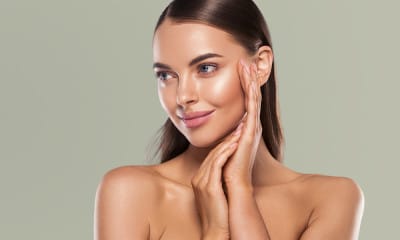Proven Tips To Deal With Hormonal Acne During Perimenopause
# Proven Tips To Deal With Hormonal Acne During Perimenopause
Like many women, dealing with hormonal acne during specific phases of the menstrual cycle is a common issue. Typically, these breakouts occur a few days before the menstrual period and are usually concentrated around the chin and jawline. As women transition into perimenopause, changes in the type of hormonal acne may occur. The acne becomes more cystic, appearing larger, deeper under the skin, and more painful. Additionally, these breakouts may extend to the neck, hairline, and cheeks. Enlarged pores are also noticeable, providing more room for dirt accumulation and bacterial growth, leading to frequent breakouts.
The hormonal fluctuations and imbalances that accompany menopause can have various effects on the skin. Decreased collagen levels result in wrinkles, sagging, and a dull complexion. Moreover, the skin may become drier, more sensitive, and further prone to acne. While there is no magical solution to completely halt the aging process, implementing specific strategies can significantly enhance the appearance and condition of the skin, especially in managing hormonal acne outbreaks during perimenopause.
## **Use The Right Skincare Products**
As individuals age, their skin undergoes changes, necessitating a shift in skincare routines and products. Products that were effective in earlier decades may no longer address the evolving needs of aging skin. Therefore, it is crucial to reassess and upgrade skincare products to cater to the demands of mature skin.
Utilizing products from FOREO as part of a skincare regimen has proven beneficial for many individuals. In particular, the ESPADA™ device, an FDA-cleared medical tool, has been clinically validated for treating acne-prone skin. By utilizing laser-focused blue LED light and T-Sonic™ pulsations, this device penetrates the skin deeply, targeting and destroying acne-causing bacteria.
The simplicity of FOREO beauty devices, including the ESPADA™, makes them user-friendly. The ESPADA™ efficiently combats acne by promoting blood circulation, skin rejuvenation, and bacterial elimination through targeted blue light emission, reducing breakouts effectively.
Another valuable product from FOREO, the ESPADA™ BHA+PHA Blemish Solution, complements the ESPADA™ device or can be used independently as a spot treatment. This acne gel consists of potent yet skin-friendly ingredients like salicylic acid, witch hazel, niacinamide, tea tree oil, panthenol, and lactobionic acid, which unclog pores, exfoliate gently, shrink blemishes, fade imperfections, reduce redness and inflammation, soothe, hydrate, decrease excess sebum, prevent infection, and deter breakouts.
For individuals experiencing deep cystic spots and enlarged clogged pores, the ESPADA™ Blemish Solution proves to be a substantial asset in skincare routines, alleviating skin concerns without overdrying or exacerbating the situation.
Establishing a straightforward and efficient skincare routine plays a vital role in maintaining skin health. Incorporating the ESPADA™ Blemish Solution and utilizing the ESPADA™ blue LED light acne device enhances self-care practices, empowering individuals to proactively address acne-related challenges.
Dealing with hormonal acne during perimenopause can be distressing, affecting self-confidence and emotional well-being amidst other menopausal symptoms. Effective treatment methods for hormonal acne are essential for promoting self-esteem. The ESPADA™ Blemish Solution stands out as a valuable addition to morning skincare rituals for combating acne-related issues.
**To find out more about FOREO products click here.**

## **Eat Skin-Friendly Foods**
Maintaining healthy skin begins internally, influenced by dietary choices. The foods consumed can significantly impact skin health. Before delving into skin-friendly food options, it is essential to address foods that may negatively affect skin health.
Consumption of caffeine, sugar, alcohol, fizzy drinks, processed foods, refined carbs, fried, and fast food can adversely affect skin health. While complete elimination may be challenging, reducing intake…Eating a balanced diet rich in complex carbohydrates, lean proteins, whole grains, and essential nutrients like magnesium, selenium, zinc, and a variety of vitamins (A, B2, B3, B6, C, D, and E) can help improve skin health. Here are some foods that contain these beneficial nutrients:
– Oily fish such as salmon, mackerel, sardines, and herring are high in omega-3 fatty acids, which can help regulate oil production, reduce inflammation, and keep the skin hydrated.
– Walnuts are a good source of selenium, antioxidants, and vitamin B, which can help tighten pores, improve hyperpigmentation, and reduce acne.
– Quinoa is rich in vitamin B3 and can help reduce sebum production, which is an oily substance that can lead to acne.
– Turkey is a lean protein that is high in zinc and B3, which can be beneficial in treating inflammatory acne.
– Broccoli contains zinc, vitamin A, vitamin C, and lutein, which can protect the skin from oxidative damage and keep it looking healthy.
Getting an adequate amount of sleep is also crucial for skin health, as lack of sleep can lead to increased stress and cortisol levels, which in turn can cause inflammation and acne. Establishing a bedtime routine, avoiding late-night eating, exercising regularly, reducing screen time before bed, and creating a calm sleeping environment can help improve sleep quality.
Staying hydrated is essential for maintaining skin elasticity and preventing issues like wrinkles, fine lines, and acne. Drinking 5 to 8 glasses of water a day can help flush out toxins and keep the skin hydrated.
For women experiencing hormonal acne during perimenopause, considering Hormonal Replacement Therapy (HRT) can be beneficial in balancing hormone levels and addressing skin concerns. Consulting a healthcare professional to discuss HRT options and monitoring progress is important for effectively managing hormonal acne.
By taking care of your skin with appropriate skincare, following a healthy diet, staying hydrated, getting enough sleep, and considering treatment options like HRT, you can work towards reducing hormonal acne and improving your overall skin health during perimenopause.














